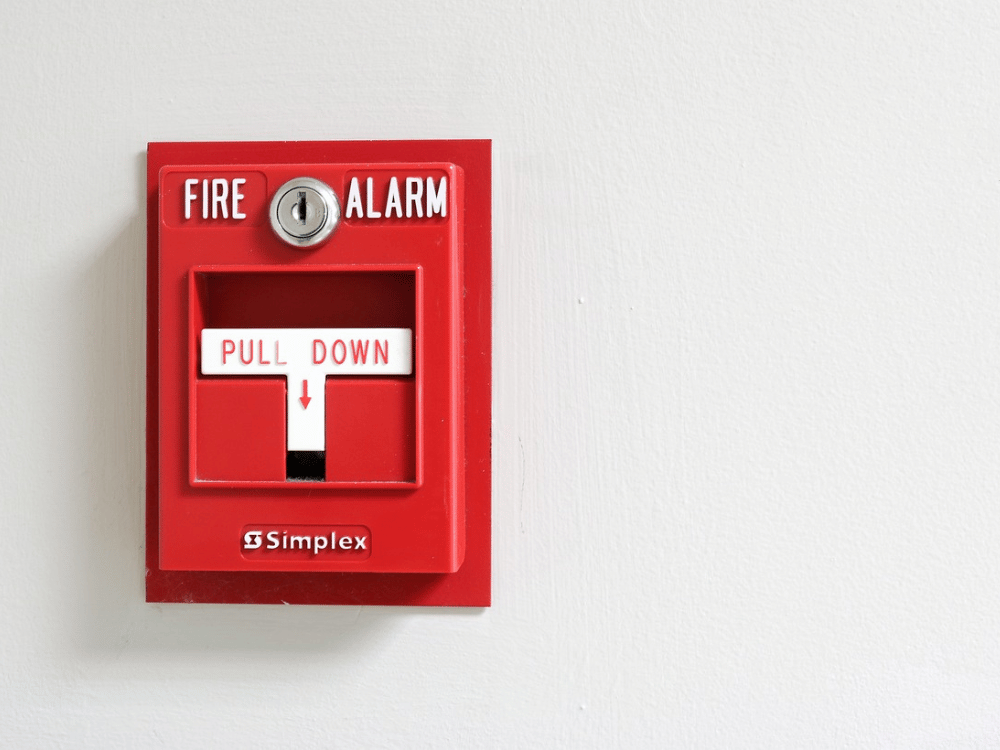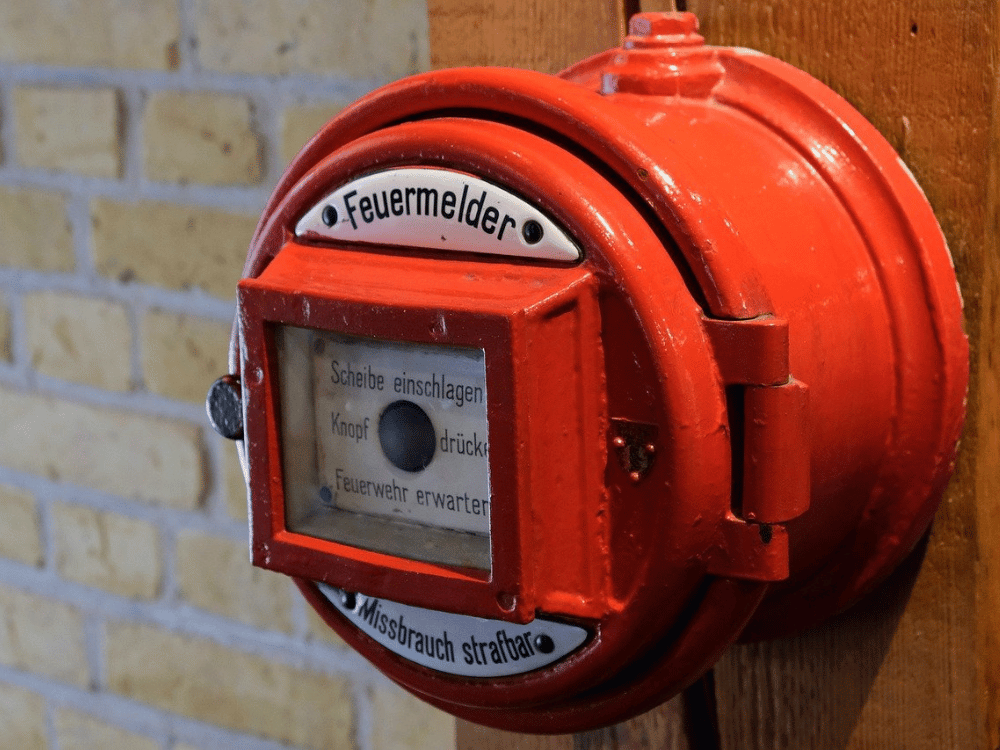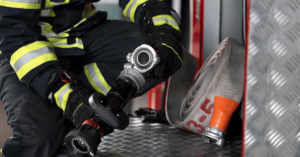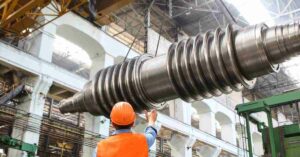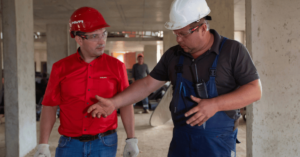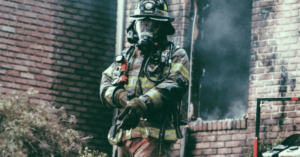According to a recent study by fire safety specialists JLA, 20% of businesses only check their fire alarm systems once a year.
Incredible statistics like this highlight how ill-equipped some companies are to deal with incidents at their sites. In addition, they also showcase the importance of fire safety knowledge in the workplace.
But how often should fire detection and warning systems be checked in your workplace, and who should conduct such important work?
How Often Should Fire Alarms Be Tested?
The British Standard BS 5839 states that, as a responsible person, you should ensure that fire alarm tests take place weekly.
In addition, to comply with The Regulatory Reform (Fire Safety) Order 2005, full services of your fire safety systems should be carried out every six months.
Together, these two requirements ensure that you are doing everything reasonably possible to maintain crucial commercial fire safety systems.
How to determine testing frequency
The frequency of testing your fire systems can also depend on the size of your premises. Because you need to ensure each of your building’s outstations is tested regularly, you may need to add each to a rotational system.
For example, in smaller premises, it is sufficient just to test one call point per week. However, if you have larger premises like warehouses or sites, you may need to test two or three per week.
How often should you test manual fire alarm call points?
BS 5839 recommends testing your fire alarms using a different call point each week.
What’s more, these weekly checks should be completed at the same time, during normal working hours and take no longer than a minute to complete.
Keeping tests under one minute ensures building occupants understand the difference between testing and legitimate alerts.
Take care to also record the results from each test in a log – your installation team should provide this.
How often should you check your smoke detectors?
You should be completing checks on your smoke alarm weekly. On average, around 90 people lose their lives every year in the UK due to issues with the batteries in their smoke alarms.
These fatalities could be avoided with regular reviews. Remember to change your batteries every year and replace the unit completely every decade.
Who Should Perform Fire Alarm Inspections?
Those BS 5839 recommended weekly fire alarm inspections should be carried out by you as the responsible person.
Alternatively, they could also be completed by your fire warden or another competent person as designated by you.
However, when it comes to the Fire Safety Order 2005 (FSO) mandated six monthly service checks, the BAFE Fire Safety Register highlights:
“Periodic inspection and servicing needs to be carried out by a competent person with specialist knowledge of fire detection and fire alarm systems, including knowledge of the causes of false alarms, sufficient information regarding the system, and adequate access to spares.
This is normally an outside fire alarm servicing organization; care needs to be taken to ensure that, if, for example, in-house employees are used for this task, they have equivalent competence to the technicians of a typical fire alarm servicing organization. Competence of a fire alarm servicing organization can be assured by the use of organizations that are third-party certificated, by a UKAS-accredited certification body [such as a BAFE SP203-1 Registered Organisation], to carry out inspection and servicing of fire alarm systems”
UK Fire Alarm Testing Regulations
Section One, Article 13 of the FSO outlines that the responsible person in any business should ensure that:
- “The premises are, to the extent that it is appropriate, equipped with appropriate fire-fighting equipment with fire detectors and alarms; and
- any non-automatic fire-fighting equipment so provided is easily accessible, simple to use and indicated by signs.”
These directives highlight that the business or building owner is responsible for ensuring their premises have installed the right fire detection systems.
The correct type of alarm system for your business could change depending on your premises, type of industry, or number of inhabitants.
Determining the specific category of fire alarm for your business should come as a result of regular fire safety risk assessments.
Following these reviews, you should instruct a fire alarm installer to design and implement a system that is compliant with the British Standards.
However, if they end up installing a non-compliant system, you, as the responsible person, will be liable even if you did the right thing by having a fire risk assessment and employing someone to complete the installation.
Types of Testing Frequencies
As we mentioned above, your commercial fire alarm system should be subjected to a host of regular checks to ensure it continues to perform.
Weekly Testing of Fire Alarms
As outlined by BS 5839, fire tests should be done at different times each week. All businesses should complete weekly testing of fire alarms to avoid system faults and other important issues.
You should complete these checks as the responsible person or a designated competent professional, and all findings documented in a log (usually provided by the system installer).
Is Weekly Fire Alarm Testing a Legal Requirement?
Weekly testing of your building’s fire alarms is a legal requirement under Article 17 of the FSO.
During these checks, the responsible or competent person should check:
- Condition: Is the external condition of your fire alarm still suitable? Are your standby batteries nearby and working?
- Sound: Do your alarms alert as they should when needed?
- Link: Is the link to your alert centre viable and working?
These checks are also essential for ensuring your staff knows what the alarm sounds like and understands the difference between a routine test and a real alert.
Monthly Testing of Fire Alarms
Monthly fire alarm tests are more in-depth and should only be carried out by a competent person if they’ve received adequate training and certification.
Many businesses employ external specialists to carry out these vital checks. The reason behind this extra resource is that the person conducting the inspections should have ready access to any tools, equipment, or parts necessary to fix issues or bring systems up to the most recent levels of compliance.
Annual Testing of Fire Alarms
Annual fire alarm tests should form part of your fire risk assessment processes. Just like regular risk assessments, fire risk assessments require competent or trained personnel to complete them.
Qualifications like IOSH Managing Safely or the NEBOSH National General Certificate are sufficient in helping define a ‘competent person’.
Recommended Testing Frequency for Commercial Premises
Commercial premises should be testing fire alarms every week. However, we should also mention at this point that in premises where the audible fault warning could reasonably go unnoticed for longer than 24 hours, a special check should be carried out each day.
Recommended Testing Frequency for Residential Buildings
Fire alarm testing in residential buildings should also occur weekly. In addition to your six monthly and annual examinations, it’s imperative to check that your alert systems are functioning correctly every week.
In addition, smoke and fire alarm requirements for landlords in the UK dictate that building owners should:
- Have a working smoke alarm on each habitable floor within the property.
- Have carbon monoxide detectors in any room with a solid fuel-burning appliance, such as a coal fire or log burner.
Fire Detection System Types Explained
Earlier, we referenced that there are different types of fire alarm systems in the UK. This is to ensure every category of building and business has the correct protections in place.
The standard types of system are:
- Manual fire alarm system
- Automatic fire alarm system
- Conventional fire alarm system
- Addressable fire alarm system
Manual Fire Alarm System
The most basic of fire alarm systems, manual alarms, rely on the occupants of the building to help detect a fire and alert other inhabitants.
Generally speaking, these require manual action, e.g., pressing a button or pulling a lever to sound the alarm.
Automatic Fire Alarm System
Automated fire alarm systems detect fires at the earliest stage possible before sounding an alert to all inhabitants throughout the building.
These are more commonplace in larger segmented work environments such as offices.
Conventional Fire Alarm System
Simpler systems like this are usually reserved for smaller premises with fewer occupants or a lower risk of fire.
Conventional systems consist of heat and smoke detectors connected to a control panel. If the system detects either element, the alarm is sounded, and emergency services are notified.
Addressable Fire Alarm System
Generally seen in larger commercial spaces like warehouses, schools, or hospitals. These more complex systems can detect incidents in certain areas of the building before flagging the fire and its location on the control panel.
Frequently Asked Questions (FAQs)
Now let’s take a look at some frequently asked questions regarding regular fire alarm testing.
Are Fire Alarms Mandatory in the Workplace?
Yes, under the Regulatory Reform Fire Safety Order 2005, every business has a responsible person for the sourcing and installation of compliant fire alarm systems.
How Often Should You Test Manual Fire Alarm Call Points?
Manual call points should be tested every week. In larger businesses, a different call point can be tested at the same time every week. Some even choose to test 2-3 points every week on a rotation basis.
How Often Should an Audible Fire Alarm be Tested?
You should review the external condition and audibility of your business’s fire alarms every week. These tests should also check for viable connections to the systems control panel.
How Often Should Fire Alarms be Serviced?
Your business’s fire alarm and system should be inspected every six months by a competent person or company.
Conclusion
Now you can see that it is vitally important to ensure your fire alarms and systems are checked weekly and subjected to inspections every six months.
Not only does this help keep your system in good working order, but it also ensures your employees and building inhabitants know what an alarm sounds like and how to react.
However, these checks should only be carried out by competent professionals with relevant training.
Completing IOSH or NEBOSH qualifications can help you become a competent person. Pass them now with TSW Training.



